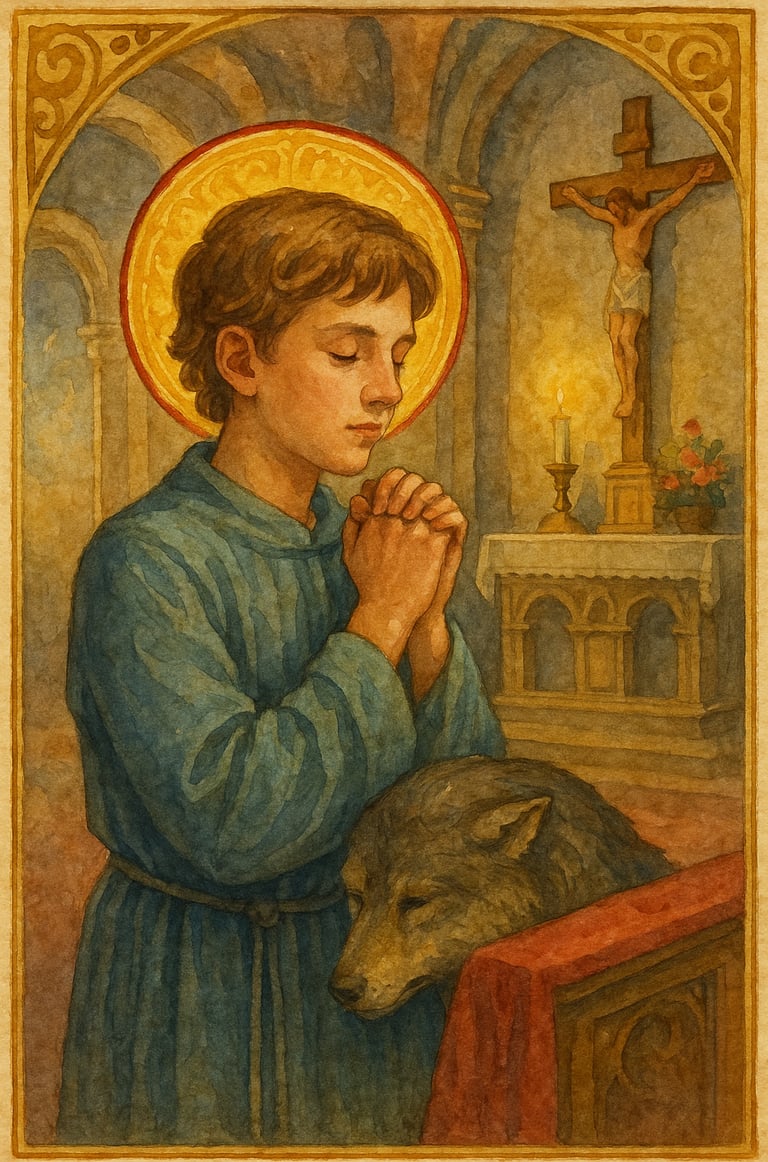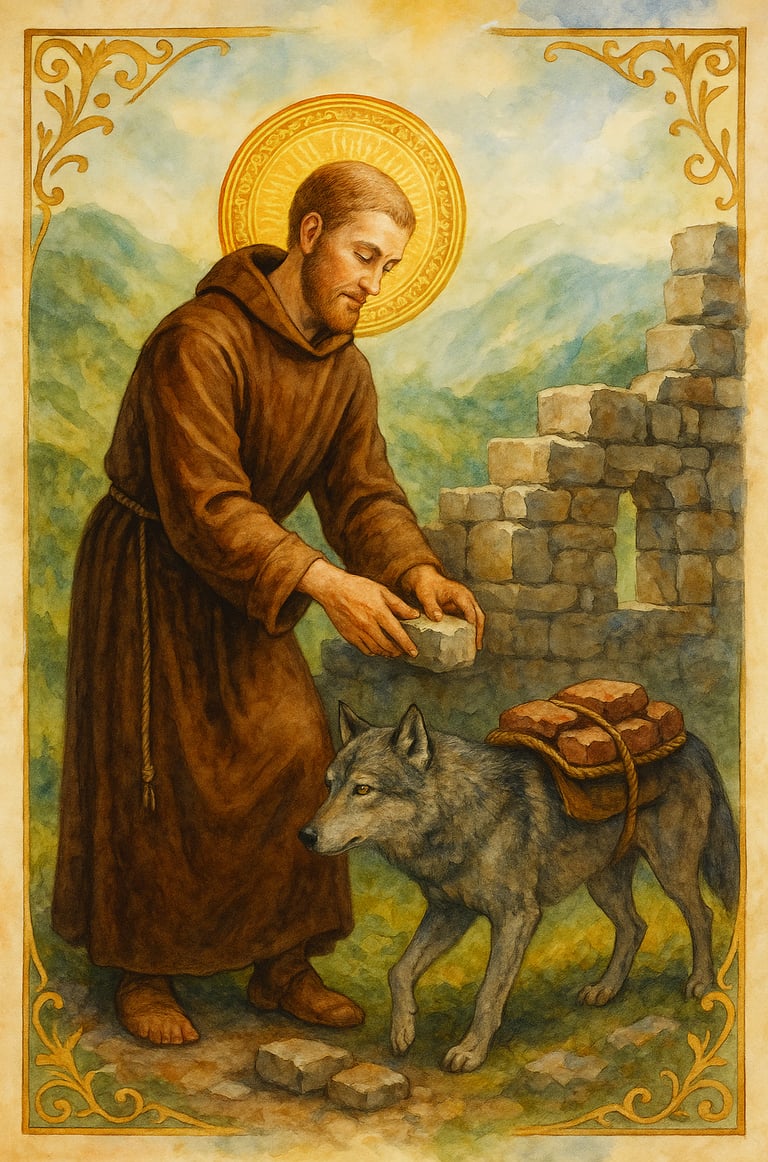St. William, Abbot of Monte Vergine
The Wolf, the Mountain, and the Present Moment
Halo & Light Studios
6/25/20253 min read


Click Link for a reel of Daily Dose of Saints and Faithful Art:
https://youtube.com/shorts/WWDSTmPV53g?feature=share
In the rugged mountains of southern Italy—far from royal courts and noisy cities—a solitary man lit a spiritual flame that still burns today. His name was St. William of Vercelli: a noble-born orphan who became a pilgrim, hermit, miracle-worker, and founder of the Congregation of Monte Vergine. His life reminds us that true holiness isn’t always loud or recognized—it is faithful, humble, and surrendered.
Born around 1085 in northern Italy, William was orphaned as a child and raised by relatives. From an early age, he longed to give his life entirely to God. He made a vow of chastity and began a pilgrimage to Santiago de Compostela in Spain—one of the most significant Christian pilgrimages of the medieval world.
The name Santiago de Compostela means “St. James of the Field of Stars” (Sant Iacobus de Campus Stellae). According to legend, a 9th-century hermit was guided by a miraculous star to the hidden tomb of St. James the Greater, one of Jesus’ Twelve Apostles. Since then, countless pilgrims have walked the Camino de Santiago, seeking healing, clarity, and deeper communion with God.
William reached this sacred site, but while preparing to continue on to the Holy Land, he was robbed. Many would have turned back in defeat. But William didn’t. He saw even this suffering as God’s mysterious redirection—a call not to go farther, but to go deeper.
He withdrew into the wilderness of Monte Vergine, a remote mountain in Campania, and embraced the life of a hermit—waiting on the Lord in prayer, penance, and silence.
As Mother Angelica, foundress of EWTN, writes in Little Book of Life Lessons and Everyday Spirituality:
“‘What is God's Will for me?’ Somebody asked me that not too long ago. Honey, if it's happening, it's God's Will; and you have to correspond to it in the Present Moment... Holiness is simple. Holiness is doing God's Will in the Present Moment. That's it. Holiness consists of four words: the Will of God.”
William practiced detachment from his own will so he could be wholly available to God’s. In a modern culture obsessed with self-determination and personal control, this kind of surrender feels radical—but it is the very heart of holiness.
He didn’t just accept divine interruptions—he allowed them to shape his vocation. Disciples were drawn to his example, and by 1119, he founded a monastic community deeply rooted in Marian devotion and Benedictine discipline.
One of the most beloved stories from his life tells of a wild wolf that killed the donkey William used for hauling stones during chapel construction. William rebuked the animal—and miraculously, the wolf became tame and obedient, taking the donkey’s place. This image of a saint walking with a wolf became his enduring symbol.
Though William preferred solitude, his reputation for sanctity reached King Roger II of Sicily, who sought his spiritual counsel and supported his monastic foundations. William went on to establish several communities before dying peacefully at the Abbey of Goleto in 1142, having foretold the hour of his death.
St. William’s life teaches us that pilgrimage is not only a journey to a sacred place—it’s a journey into surrender. God’s will is not always obvious, but it is always present in the moment we are living now. Holiness often means doing the next right thing, even when our plans fall apart.
When life takes an unexpected turn, we may ask: “Is this really God’s will?”
The Church helps us make sense of this by distinguishing between two ways God works:
Divine Will is what God actively desires—His perfect plan of love, truth, and grace.
Permissive Will is what God allows—even suffering, sin, or setbacks—so that a greater good may come. God never wills evil, but He can use it to draw souls closer to Him through growth, repentance, and deeper trust.
Mother Angelica offers a simple and practical guide for discerning God's will. When faced with a difficult decision or unexpected cross, ask:
Does it violate the Commandments or the precepts of the Church?
Will it give God honor and glory?
Will it benefit my family and strengthen my spiritual life?
If the answer aligns with truth and love, walk forward in faith. As Mother Angelica reminds us, “If it’s happening, sweetheart, it’s God’s will.”


